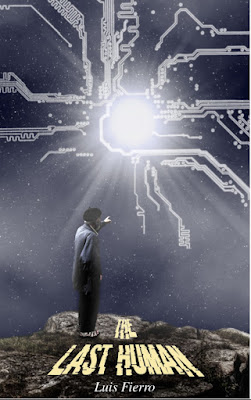By Luis Fierro Carrion (*)
Twitter: https://twitter.com/Luis_Fierro_C
One of the films nominated for the "Oscar", "Don't Look Up", has introduced into the public debate the possibility of the end of the world (although perhaps it would be more appropriate to speak of the end of humanity, since the planet will probably continue to exist).
The essential plot is that some astronomers detect that there is a comet that is going to impact the Earth, with catastrophic effects, in a “mass extinction event”. Although scientists warn about the seriousness of the issue, first to the President of the United States, and then to the media, their warning is not taken very seriously. The President (played by Meryl Streep), a somewhat Trumpian character, even begins to question the veracity of the astronomers' warning, and at one point calls on her followers to "not look up" (not look at the comet in the sky), questioning the validity and importance of the alert.
The possibility of a meteorite or comet impact that could lead to the extinction of many species on the planet is real, although remote (it already happened 65 million years ago, when the impact of a meteorite that created the Chicxulub crater, contributed to the Cretaceous-Tertiary mass extinction).
However, according to the film's producers and actors, the movie is really a metaphor or analogy for the climate change crisis, in the sense that scientists (including the Intergovernmental Panel on Climate Change, or IPCC) present increasingly alarming studies on the possible consequences of accelerating climate change, but many governments and sectors of the population ignore or minimize its seriousness.
Last year I published an eco-thriller or science fiction novel called “The Last Human” (available in digital or print versions on Amazon, https://www.amazon.es/Last-Human-English-Luis-Fierro-ebook/dp/B09D45JFK8 ). In this novel I deal with the various existential threats that weigh on humanity, or the new "Horsemen of the Apocalypse". I mention, of course, climate change and the possibility of a meteorite impact, but I also focus on the following risks: nuclear proliferation, terrorism, pandemics and the uncontrolled development of artificial intelligence.
Nuclear proliferation has led to Israel, India, Pakistan, and North Korea joining the club of nuclear-armed countries (and efforts by Iran to join the club). One risk is that nuclear weapons could fall into the hands of terrorists, for example, through the lack of control or the collapse of regimes such as those in Pakistan or North Korea.
As for pandemics, while the bubonic plague has decimated the population several times (most recently in the 14th century, although there was a less lethal pandemic in the 19th century), the deadliest pandemics in the last century, the “Spanish flu” and the current one of COVID-19, caused the death of around 1% and 0.3% of the world population, respectively.
Terrorism (mainly jihadist in recent decades, but also far-right) could cause millions of deaths if terrorists acquire weapons of mass destruction (nuclear, chemical or biological). Even if they don't acquire nuclear weapons, they could cause great damage by setting off radiological bombs, which disperse radioactive material.
Regarding artificial intelligence, in the book I explore the possibility that computer systems can acquire an "artificial consciousness", as happened in movies like "The Matrix", "Terminator" or "I, Robot".
In the end, although in the long term astronomical threats (transformation of the sun, major changes in the Earth) could affect living beings on the planet, in a shorter term it will be the actions of humans themselves who call into question survival of humanity.
(*) A shorter version of this note was published in Spanish in Diario "El Universo" on February 18, 2022:
https://www.eluniverso.com/opinion/columnistas/el-fin-del-mundo-nota/


No comments:
Post a Comment